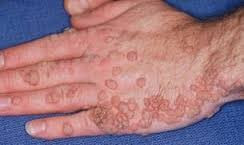Chiklita ad
Showing posts with label HPV infection. Show all posts
Showing posts with label HPV infection. Show all posts
Wednesday, 8 November 2017
IUDs may prevent cervical cancer
IUDs are safe and highly effective contraception method, intrauterine devices (IUDs) may also be quietly offering protection against the third-most common cancer in women worldwide.
The number of women diagnosed with cervical cancer is steadily rising. According to the World Health Organization WHO, approximately 528,000 women were diagnosed with cervical cancer worldwide in 2012, and 266,000 women died from the disease. By 2035, the WHO projects that those numbers will climb to more than 756,000 and 416,000, respectively.
For women in developing countries, where cervical cancer prevention resources such as the human papillomavirus HPV vaccine or regular cervical screenings are scarce, and where populations are increasing rapidly, a contraceptive that offers protection against cervical cancer could have a profound effect.
IUDs could be a tool to combat cervical cancer. Some scientists speculate that the placement of an IUD stimulates an immune response in the cervix, giving the body an opportunity to fight an existing HPV infection that could lead to cervical cancer. Another possibility is that when an IUD is removed, some cervical cells that contain HPV infection or precancerous changes may be scraped off. The body mounts an immune response to having an IUD placed.
haleplushearty.blogspot.com
Thursday, 21 September 2017
HPV vaccine does not cause infertility
The human papilloma virus HPV is a family of viruses, there are over 110 different types of HPV and more than 50 types that affect the genitals.
Different types of HPV are either high risk or low risk, depending on the conditions they can cause.
Some types of HPV can cause warts or verrucas. Others are associated with cervical cancer. Infection with low-risk HPV causes no symptoms and goes away without treatment. But infection with some high-risk types of HPV can cause abnormal tissue growth and cell changes that can lead to cervical cancer.
HPV infection is spread during sexual intercourse, it has been linked with reduced semen quality and lower pregnancy rates. Sexually transmitted infections STIs are associated with lower fertility, but vaccinated women with an STI history had about the same chance of becoming pregnant as unvaccinated women who had never had an STI.
Infection with other types of HPV may cause genital warts, skin warts, verrucas, vaginal cancer or vulval cancer. There is no adverse effects of HPV vaccination on fertility.
HPV is common, almost all sexually active men and women get the virus at some point in life. Having HPV can increase the risk of cervical cancer and removing cancerous or precancerous cells from cervix can reduce fertility.
haleplushearty.blogspot.com
Tuesday, 13 June 2017
HPV vaccine can reduce cervical cancer
Cervical cancer affects more than half a million women and causes more than a quarter of a million deaths globally.
Cervical cancers result from a human papillomavirus, or HPV infection.
HPV infections can cause cancers in other parts of the body, the latest HPV vaccine could prevent infections and many cancers.
The HPV vaccine could prevent up to 90 percent of HPV-related cancers, the vaccine can prevent HPV infection if the vaccine is given before exposure to any of the HPV types that the vaccine protects against.
Different formulas of the HPV vaccine protect against different types of HPV. Only two types, HPV16 and HPV18, cause 70 percent or more of all invasive cervical cancers and all HPV vaccine formulas protect against these two.
The nonavalent formula of the HPV vaccine is the most protective: it protects against HPV16, HPV18 and five other cancer-causing HPV types.
Experts estimate that the nonavalent HPV vaccine could reduce HPV-related cancers worldwide by 90 percent or more if the entire global population received it.
haleplushearty.blogspot.com
Friday, 2 June 2017
HPV infection can cause cervical pre cancer in HIV positive women
Persistent HPV infection can lead to the development of precancerous lesions and cervical cancer.
Previous research has indicated that HIV-positive women face an increased risk of HPV infection, precancerous lesions, and cervical cancer compared with HIV-negative women.
Researchers analyzed data from six studies conducted from 1994 to 2010 in Senegal, where HIV is endemic. They followed 1,320 women for an average of two years, testing them for HPV and cervical abnormalities approximately every four months.
At each clinic visit, women were characterized as normal, HPV-positive, or HSIL (HPV-positive with high-grade squamous intraepithelial lesions, a precancerous lesion that may progress to cervical cancer if untreated).
The study showed that HIV-positive women had higher rates of acquiring HPV, and lower rates of clearing HPV infection, than HIV-negative women.
Women whose immune systems were compromised by HIV were also more likely to have HPV infection progress to pre-cancer.
haleplushearty.blogspot.com
Subscribe to:
Posts (Atom)



